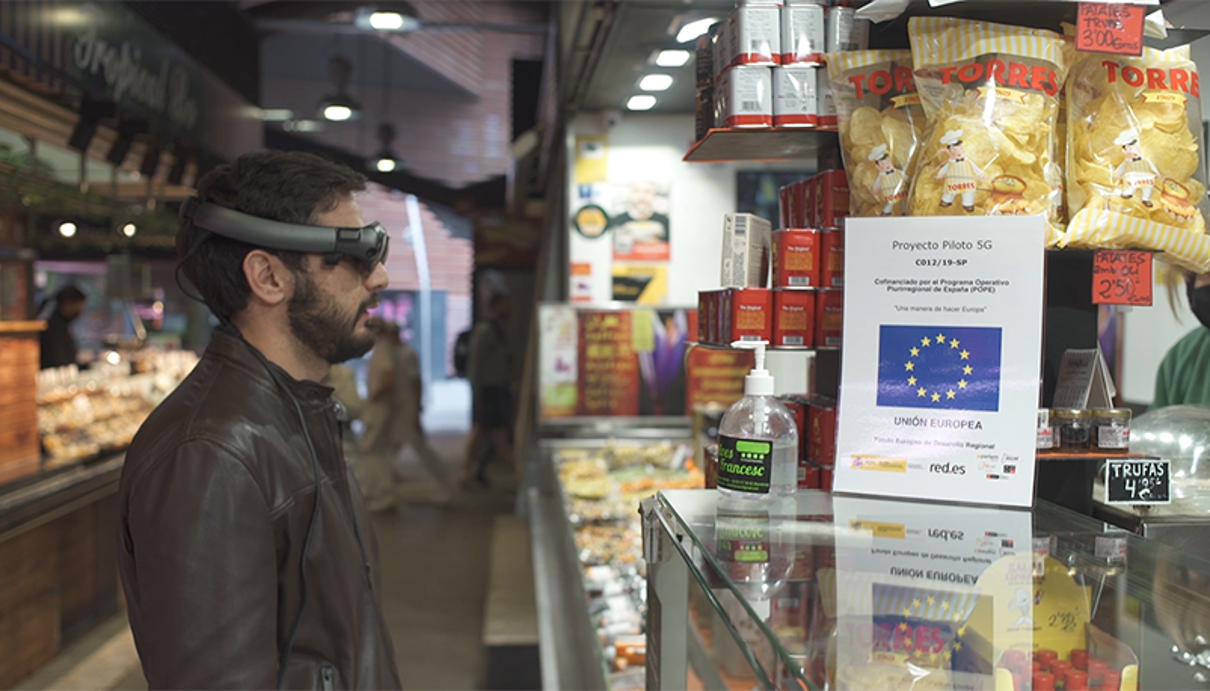Page content
Expo highlight Lenovo: Barcelona as a role model - Ideas for the Smart City in Germany

AR glasses allow customers to interact with retailers remotely and in real time. Image: Lenovo
Germany can also learn from Barcelona's experience to design its own smart cities that are technologically advanced and sustainable. A key element of Barcelona's success is its investment in comprehensive digital infrastructure and public connectivity.
The more than 3000 distribution cabinets with built-in edge servers from Lenovo make it possible to process data close to the source. This is especially crucial for applications such as autonomous vehicles and traffic monitoring. Edge computing opens up opportunities for increased efficiency and customized solutions in smart cities.
Barcelona has deployed automated 5G shuttle buses at trade fairs as part of a pilot project to allow visitors to move flexibly between halls. A similar system in Germany could improve mobility at major events and lead to a smoother visitor experience. The AI-driven image recognition and vehicle communication applications ran on Lenovo's edge computing servers.
Retailers can benefit from augmented reality (AR), as exemplified by La Boqueria market in Barcelona. Livestreams using AR glasses allow customers to interact with retailers remotely and in real time. This idea could also revitalize retail in Germany and further blur the boundaries between online and offline shopping experiences.
Overall, the example of Barcelona shows how technology can act as a driving force for urban development. Similar applications could also help transform urban life in Germany by improving mobility, communication, shopping and industrial processes in innovative ways.
Become an exhibitor at #SCCON25
As a driving force for the future of digital administration and for equal digital living and working conditions in cities and rural areas, the Smart Country Convention is a must for all stakeholders who actively advance the digital transformation. Are you interested in advancing the digitization of our cities and municipalities too? Join us and position your company or municipality as an expert in digitalization in the public sector.



